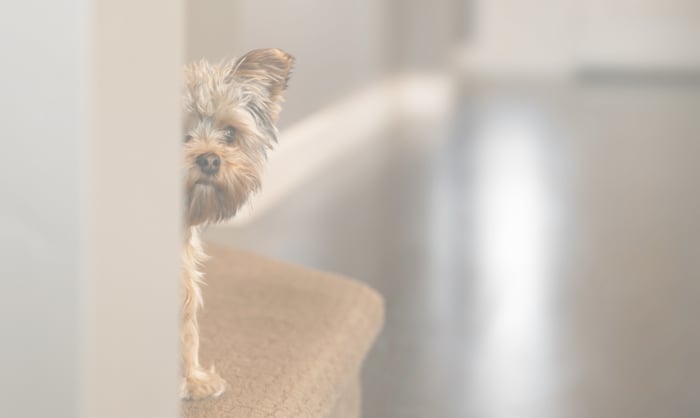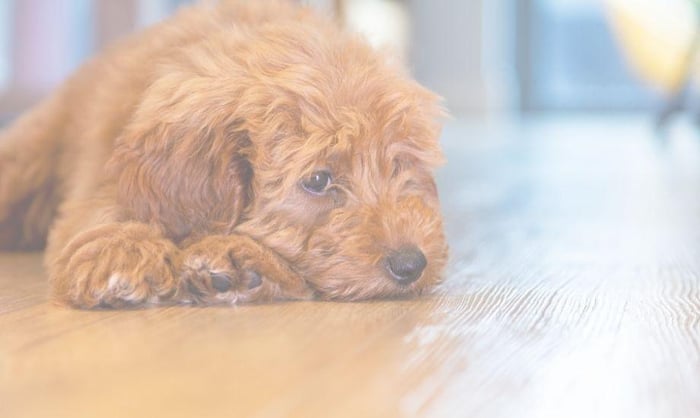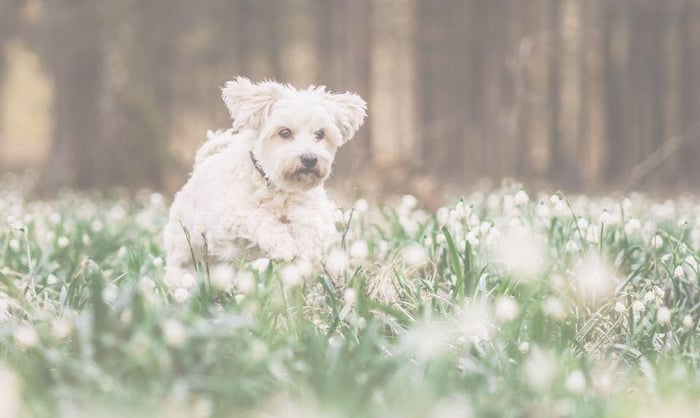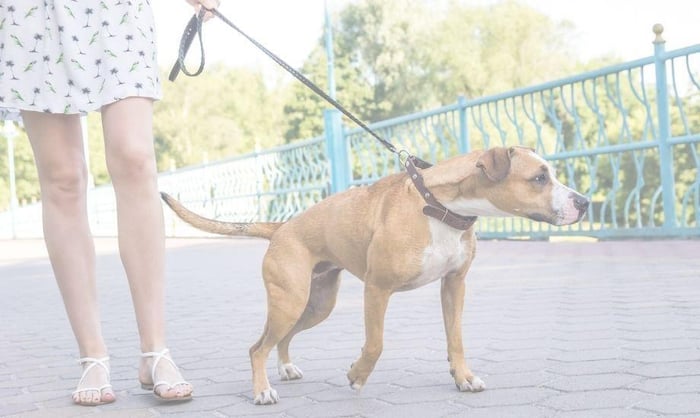As we are coming up on the ‘one-year COVID anniversary’, we can reflect on how this pandemic has affected all of us. It doesn’t stop at us humans, though - dog anxiety during COVID has had a drastic impact on our four-legged family too! There are a number of ways that 2020 may have caused extra stress for our canine pals.
😷“Stranger Danger” With Masks
With the new mask requirements, many of the other humans our pups are interacting with now look very different to them than they used to! Many of us are also getting more deliveries to our homes, meaning that the doorbell is ringing more regularly, which can lead to barking and excitement. All of a sudden, any visitors coming to your home are staying outside the house and they look different to your dog with their facemasks on, so it is completely understandable that our puppy pals may be more unsure of strangers.
TIP: If you have friends or family who would be comfortable coming by with masks on, work on comfortably desentizing your dog by allowing him or her space and time to warm up to the person in the mask first, and then have the “stranger” toss pieces of treats to the dog. Allow the dog to come to the masked stranger when they are comfortable and get lots of treats and praise!
💤Changes In Routine
The pandemic has seen many of us working from home, with a drastic change in our schedules occurring overnight. Although we all joke that our pets are loving having us at home, this may not be totally true! Many dogs are being taken out for more frequent walks, and not left alone for their regular nap times. This can lead to feelings of uneasiness as many dogs thrive in a consistent routine, and the sudden changes can put them on edge.
TIP: When trying to introduce routine back into both your and your pup’s lives, it can be helpful to start small to set yourself up for success. Once you feel ready to work up to more of a routine, it can be helpful to set alarms or reminders in your phone for everything such as meal time, bathroom breaks, walks, dedicated play time and dedicated training time. This will help our buds to feel more comfortable and if you’re working from home it will also encourage your dog not to constantly beg for attention.
🚶♀️Human Stress - Doesn’t Go Unnoticed
It’s no surprise that we have been feeling the stress of living through a global pandemic. What may be surprising, however, is the fact that this might be trickling down to our canine buds, too! For one, they are highly intuitive animals and can definitely pick up on things not being right when we are feeling down or anxious. We also are likely to be looking to our fur family for more comfort than we used to, and not all dogs want to have their R&R time interrupted for constant cuddles! Remember that as much as we love our four-legged family members, they still need some alone time too.
TIP: Practice allowing your pup to have some autonomy. You can do this by checking in when giving pats and attention - pull your hand back for a minute and if your dog asks for more pats then continue on as you were. It is also important to allow your bud time to rest and recharge undisturbed. The saying ‘let sleeping dogs lie’ exists for a reason. Experts suggest increased quality time with pets could be a silver lining, potentially easing dog anxiety during COVID by providing comfort and stability in uncertain times!
🏡Once Restrictions Are Lifted, Separation Anxiety May Come Knocking
When we do get to the point when restrictions are lifted and we start to leave the house more regularly, we may find that our pups are showing signs of separation anxiety! If you’re concerned about this becoming an issue, it can be a good idea to leave the house and leave your dog alone, or if they are crate trained continue to give them time in their crate away from you during the day.
TIP: If your pup is suffering from some minor separation anxiety, there are some things that you can do to minimize their anxiety!
- Don’t make a big deal when you leave and come back home. Ignore your dog and wait to give them attention until they are calm
- It can be helpful to leave a blanket or article of clothing that smells like you, as long as your dog won’t ingest it
- Counter-condition your dog by making leaving a fun experience for them, especially if you are using a crate. You can leave them something like a stuffed Kong (which can be frozen to last longer) but make sure to only give them this super special treat or toy when you’re leaving
- Train them to a voice command to indicate that you are leaving but will be coming back soon
- Over the counter calming aids can also be beneficial. There are diffusers, collars, treats, Thundershirts, etc. You can also check out our previous blog on pet-safe essential oils as some of these have anti-anxiety properties
- Leave the TV or radio on
If your dog has a more severe case of separation anxiety, you may need to speak to your vet about starting a prescription anti-anxiety medication in conjunction with behaviour modification with a trainer.
Don’t forget to keep checking in on the Bud Blog for more information about dog anxiety during COVID and how we can help! And as always, feel free to reach out to us!






